- Learning time
- 40 minutes
- First play time
- 180 minutes
Railways of the World
Designed by: Glenn Drover,Martin Wallace
First opening the (big) box that is Railways of the World can seem overwhelming. There’s two boards, a scoreboard, decks of cards, plastic pieces, wooden cubes, money, train track, loads of trains… what madness is this? But be calm – a read through the rules and a first play reveal a game that’s great for almost any age.
Each player represents a Train Baron who is building track across a country (the box comes with both Eastern USA and Mexico boards, but it’s possible to get hold of others) connecting cities to each other, and delivering goods from one city to another. Which goods? Well, the goods come in several colours (the wooden cubes) that are dispersed randomly on the multicolored cities during set-up, and simply need to be delivered to a city of a matching colour.
That’s the game, in essence. On your turn you can do one of several things: build track links (and put your own coloured trains on it to show ownership), deliver goods (for points), upgrade your train (to deliver over several links), pick up a Railroad Operations card (which give advantages the other players won’t have), or play an Operations card you picked up earlier.
Players don’t start with any money but can take as many bonds as they like, giving them cash – the catch being that each bond is minus 1point from their score at the end of the game, so if you’re taking a lots of bond, you need to build a big lead over opponents playing more frugally.
There are bonuses for completing certain routes and some Railroad Operations cards give more bonuses – for the next player to deliver to a certain city, for instance. And there are big advantages to going first in this game, so first player position is auctioned in every turn, with play moving clockwise from the winning bidder.
Finally each player has a secret Baron card that will award bonus points at the end of the game if certain conditions are met by the player in question – least bonds taken, most track built, most connections to a particular city, etc.
If it sounds complicated just remember that your primary aim is to build track and deliver goods – everything else is dressing that a couple of plays will bring familiarity and clarity in a rewarding game.
The guru's verdict

-
Take That!
Take That!
If a player is about to get a big bonus for fulfilling a certain route, it is possible for other players to build track to block their route. First player also gets first dibs on available Operations cards and could potentially make a spoiling move.
-
Fidget Factor!
Fidget Factor!
Once everyone knows what they're doing Railways can be a fairly quick-moving game, and if it's not your turn you need to keep an eye on what the other players are up to
-
Brain Burn!
Brain Burn!
There's a bit of maths involved in calculating costs of building, but it's very basic.
-
Again Again!
Again Again!
Goods cubes are distributed randomly and the bidding for starting player means the game always feels fresh and challenging in a good way.

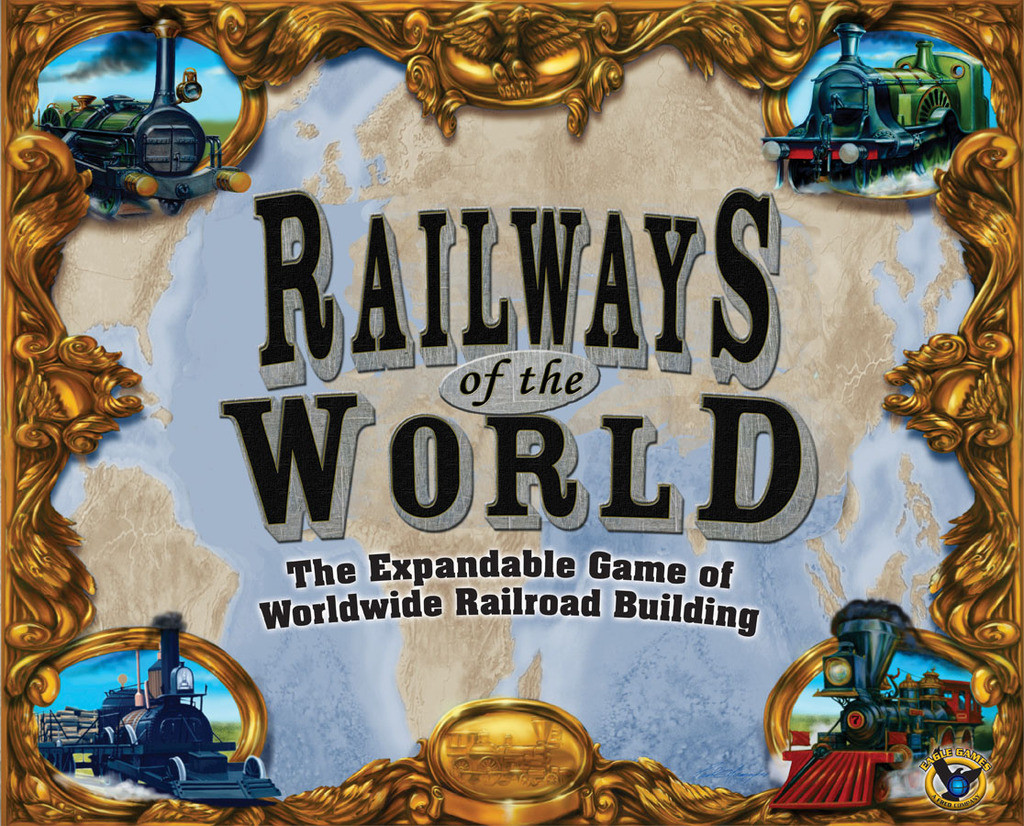
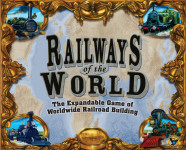
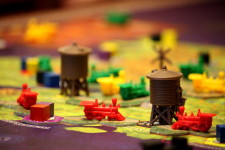
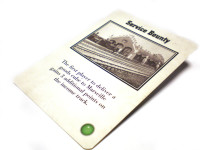
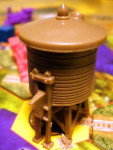
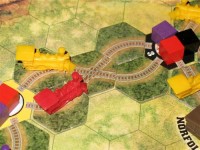
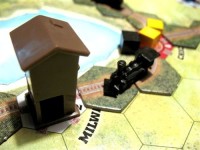


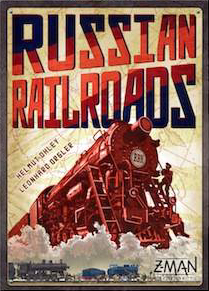
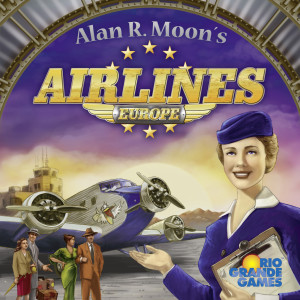
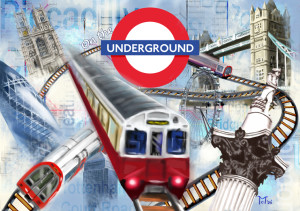
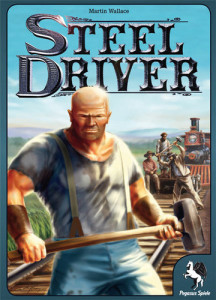
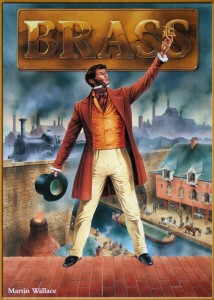
Sam says
Railways is one of my favourite games. The first time I played (with five players) it seemed bewildering and interminable. But a second play reduced that greatly, and now even with three players we can finish it in an hour and a half. With two players it's half that. The game is so intuitive - the thrust is simply building track and delivering goods: everything else around that slots in neatly. Of course it's more expensive to build track over mountains or rivers. Of course improving your trains to deliver further afield costs money. And of course as you expand further and further, eventually your returns start to fall again as your train company becomes not a pushy young upstart, but an unwieldy red-tape behemoth, about to be replaced by diesel... I've been playing with a group of people whose tastes are fairly diverse, and we can never all agree on one game being a classic. But Railways comes closest to uniting us. Don't be put off by that dry-as-bones box art; this is a beauty.